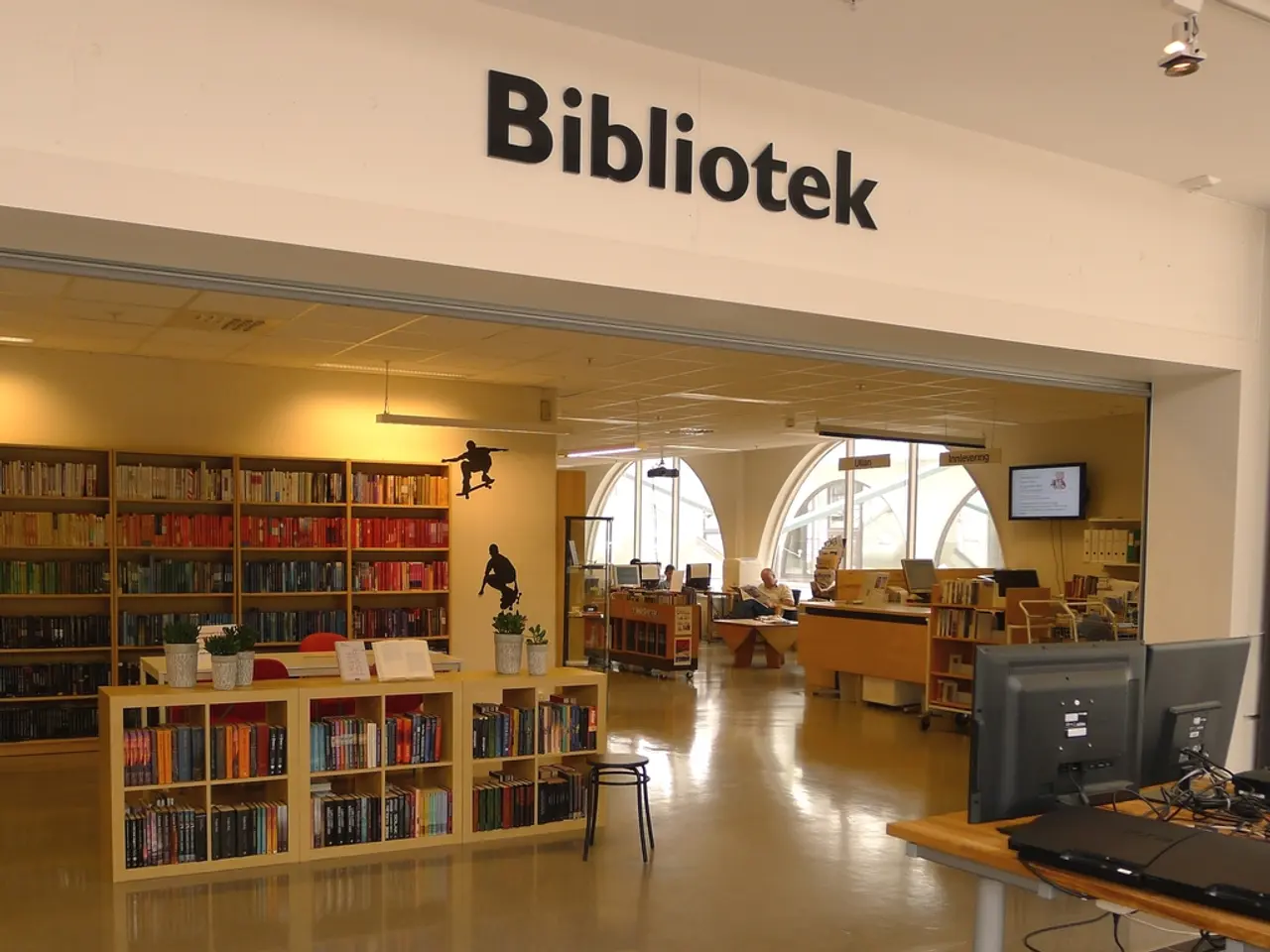Research Advancements in the Fields of Art, Humanities, and Social Sciences by Businesses
A new policy brief, titled "Creative Industries Innovation in Seaside Resorts and Country Towns," has been published, focusing on the significant role of arts, humanities, and social sciences (AHSS) research and development (R&D) in driving innovation and economic growth in the UK. The brief was written by Professor Hasan Bakhshi MBE, Jonathan Breckon, and Ruth Puttick.
The UK television production sector is one of Britain's leading creative export sectors, contributing creatively solutions and interdisciplinary approaches that enhance business innovation, particularly in media, design, and technology integration. This form of R&D fosters new skills and methodologies that businesses can leverage to improve products, services, and processes.
The creative and cultural sectors contribute a substantial share of the UK economy, around 9.3% in 2023, demonstrating their economic significance. Investment in R&D within these fields drives productivity and supports the growth of small and medium enterprises (SMEs) as well as larger firms, encouraging a diverse, innovative economy.
However, there is a risk of a "gulf" between how R&D happens and the policies that support it, particularly in the services sector, which is 80% of the UK economy and contains fast-growing, internationally competitive sectors like the creative industries. Traditional frameworks for measuring R&D often do not fully capture the unique ways that creative and cultural knowledge domains contribute to innovation. Developing appropriate metrics and recognizing this R&D can help guide funding, foster partnerships, and elevate the UK’s international profile as a leader in interdisciplinary innovation.
The policy brief outlines recommendations for transitioning to more sustainable theatre production and sets out areas for possible policy action in skills, jobs, and education in the UK. Without the right definitions and tools to measure R&D, and effective policies in place to support it, the Government risks ignoring the full value of R&D in the UK economy, and missing out on incentivizing investment in innovation in AHSS-related sectors and activities.
The research study, on which the policy brief is based, is structured around ten headline findings that tell a story about the broad nature of R&D in the arts, humanities, and social sciences, the more selective interpretation of the definition of R&D in UK policymaking, the limits this imposes on accurate data collection, the implications for business understanding, and the opportunities for more effective research and innovation policymaking.
The paper can be referenced as Bakhshi, H., Breckon, J. and Puttick, R (2021) "Business R&D in the arts, humanities and social sciences."
Ruth Puttick, a Senior Research Associate at Nesta and the lead author of the policy brief, previously worked at Nesta, leading large-scale studies into public and social innovation. Jonathan Breckon is an independent consultant and Senior Visiting Research Fellow at King's College London.
The policy briefing covers a wide range of topics, including Education, Skills, Talent, Internationalisation, State of the Nations, Geography of the Creative Industries, and International, Trade, and Immigration. It provides a comprehensive analysis of audiences and workforce in arts, culture, and heritage, and examines international trade in the UK creative industries.
In summary, arts, humanities, and social sciences R&D enrich the UK’s business landscape with creative and innovative capabilities vital for economic and societal progress. Policymakers should integrate these domains into R&D strategies to capture their full impact and ensure support mechanisms reflect their contribution to innovation, culture, and competitiveness globally.
- The policy brief, titled "Creative Industries Innovation in Seaside Resorts and Country Towns," emphasizes the crucial role of arts, humanities, and social sciences (AHSS) research and development (R&D) in driving innovation and economic growth in the UK.
- The UK television production sector, a leading creative export sector, contributes creatively by offering solutions and interdisciplinary approaches that boost business innovation, specifically in media, design, and technology integration.
- This form of R&D nurtures new skills and methodologies, empowering businesses to enhance products, services, and processes.
- The creative and cultural sectors account for a substantial portion of the UK economy, at approximately 9.3% in 2023, showcasing their economic significance.
- Investment in R&D within these sectors drives productivity and supports the growth of small and medium enterprises (SMEs) as well as larger firms, fostering a diverse, innovative economy.
- However, there is a potential gap between how R&D occurs and the policies that support it, particularly in the services sector, which makes up 80% of the UK economy and hosts fast-growing, internationally competitive fields like the creative industries.
- Traditional frameworks for measuring R&D may not fully capture the unique ways that creative and cultural knowledge domains contribute to innovation.
- Developing appropriate metrics and recognizing this R&D can help guide funding, foster partnerships, and elevate the UK’s international profile as a leader in interdisciplinary innovation.
- The policy brief outlines recommendations for sustainable theatre production and offers potential policy actions in skills, jobs, and education in the UK.
- Without accurate definitions and tools to measure R&D, and effective policies in place to support it, the Government risks undervaluing the impact of R&D on the UK economy and missing opportunities to incentivize investment in innovation in AHSS-related sectors and activities.
- The research study, upon which the policy brief is based, consists of ten headline findings that highlight the nature of AHSS R&D, the interpretation of the definition of R&D in UK policymaking, the challenges in data collection, the implications for business understanding, and opportunities for more effective research and innovation policymaking.
- The policy brief addresses numerous topics, such as Education, Skills, Talent, Internationalisation, State of the Nations, Geography of the Creative Industries, and International, Trade, and Immigration, offering a comprehensive analysis of audiences, workforce, and international trade in the UK creative industries.




